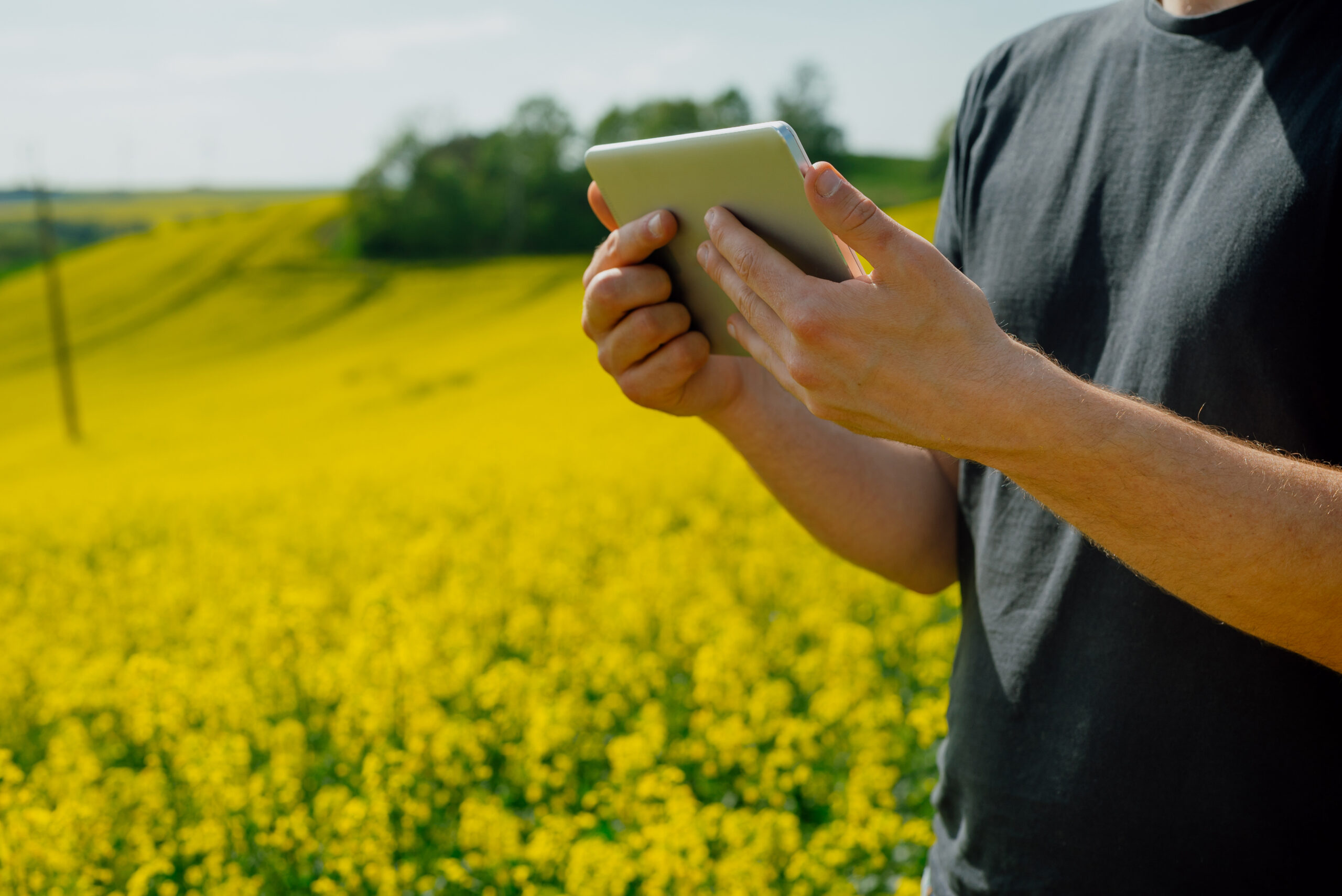
Embedding Agriculture with IoT: Agrotech in Industry 4.0

FoxERP
Agriculture is one of the most prominent occupations in most countries. It is not just a sector delivering business, but a very way of providing livelihoods to the masses, not only in terms of providing them with employment or the food where imagining a world without agriculture is next to impossible.
Like any other industry, the agriculture industry is also undergoing transition and shifting to an all-new level of digitization, helping farmers and agro players drive digitally driven Agro Tech solutions.
As the name suggests, Agrotech refers to using digital tools and technology in agricultural practices and delivering digital ways of farming.
Such digital tools and technologies include IoT-enabled connected sensors that drive digitization across the entire value chain of agriculture and help farmers and agro-business players promote smart farming, improved productivity, and higher agricultural yields.
Factors such as the rise in internet penetration, the need to cultivate more crops, and the surge in climate change are propelling the global AgroTech market.
The below-discussed trends are setting industry benchmarks in Agriculture, encompassing emerging technologies.
1.Leveraging IoT-based solutions
IoT has got a wide array of applications in agricultural practices. IoT- enabled solutions focus on helping farmers close the supply-demand gap by ensuring high yields, profitability, and environmental conservation.
Precision agriculture is a new concept introduced into agro practices. It utilizes IoT technology for the optimum application of resources to achieve high crop yields and reduce operational costs.
The IoT-enabled sensors allow farmers to keep track of factors such as light, humidity, temperature, soil moisture, crop health, and an automated irrigation system, promoting Agro Tech across the fields.
2.Livestock tracking and Geofencing
IoT -enabled sensors also utilize wireless IoT applications to collect data about the cattle’s location, well-being, and health, thereby keeping track of the cattle’s health, preventing the spread of disease, and lowering labor costs.
This helps farmers mitigate the risks associated with cattle, plants, and crops and promotes resilient livestock health.
3.Predictive Analytics for Smart Farming
Crop prediction plays a vital role, especially in times when the cultivation of crops has become essential, as it helps the farmers make decisions regarding the future plan of crop production, its storage, marketing techniques, and risk management.
Predictive analytics allows farmers to gather information collected by sensors from the farm via the dashboard and customized mobile application.
4.Automated Crop Harvesting
Crop harvesting often turns out to be the plight of farmers due to untimely harvests and poor field yield. Factors such as weather, untrained personnel, and poor farm management lead to a poor output of plants and crops.
The Internet of Things lets farmers automate the crop harvesting process and deliver hassle-free crop management across the entire value chain of agriculture.
Moreover, Agrotech is on the rise with the growing awareness amongst the farmers regarding crop management, timely crop cultivation, and higher crop yields.
Conclusion
The growing significance of digitization has resulted in agricultural practices, too, opting for digitized processes.
IoT-enabled sensors let farmers automate crucial farming practices, track crops, and soil health, and deliver hassle-free digital Agro Tech that leads to better productivity, enhanced resilience, and higher crop yield.
Recent Posts

FoxERP
Unleashing the Power of ERP Cloud Migration: Benefits, Challenges, and Options
In the contemporary business landscape, Enterprise Resource Planning (ERP) systems play a pivotal role in driving operational efficiency and facilitating strategic decision-making. With the rapid evolution of cloud technology, organizations are increasingly exploring the option of migrating their ERP systems to the cloud to unlock a plethora of benefits and drive digital transformation.

FoxERP
The ERP Revolution: Navigating Enterprise ERP System Challenges
Enterprise Resource Planning solutions can be a lifesaver for businesses. It enables you to automate all your day-to-day business processes in a centralized and streamlined platform. Today, most business organizations implement ERP solutions like FOX ERP to improve business operations, boost data security and data quality, automate workflows, and enhance customer service.

FoxERP
Unlocking Organizational Success by Embracing the Strategic Roadmap to ERP Implementation
Do you know? The global ERP software market is expected to reach a staggering $78.40 bn by 2026, growing at a CAGR of 10.2%. The global ERP software market is estimated to take over 40% of the market share by 2025.



